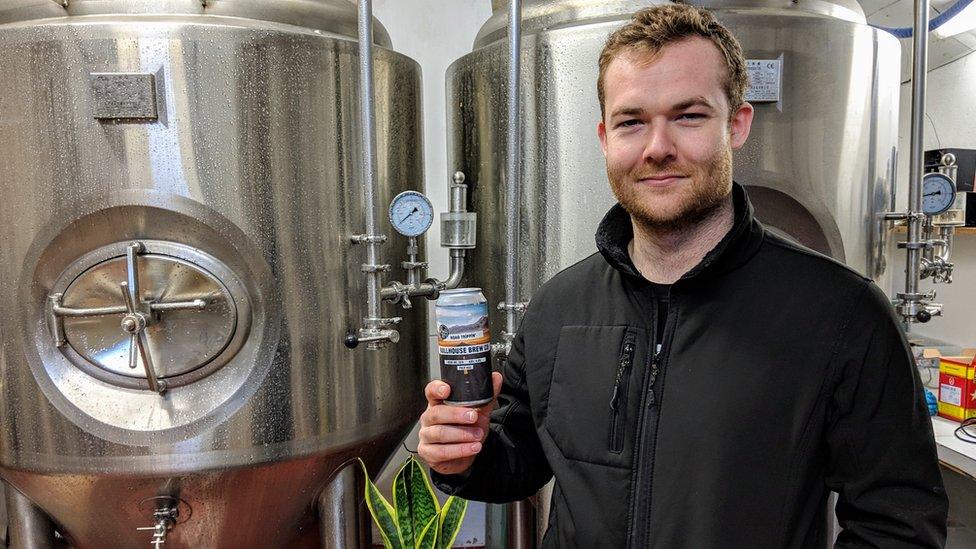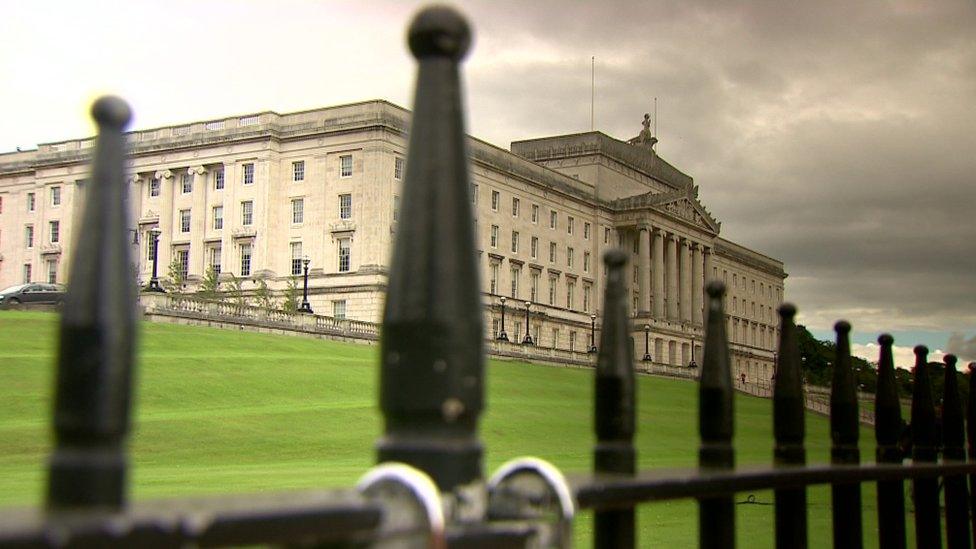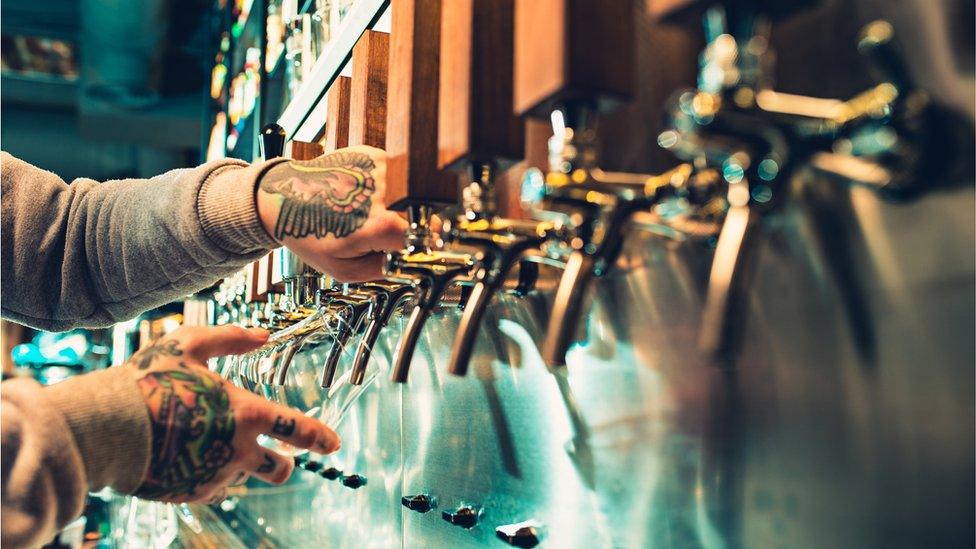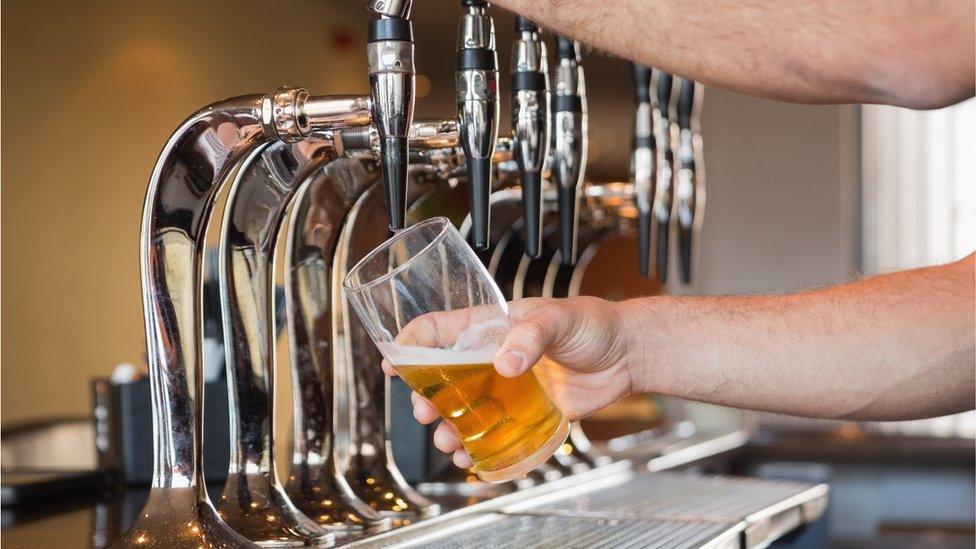NI brewers 'let down' by alcohol licensing laws
- Published
Alcohol licensing laws "need to change"
It's going to be a long, hot summer for alcohol brewers in Northern Ireland who say they feel let down by "restrictive" alcohol licensing legislation.
The current law means local alcohol producers cannot allow their product to be sampled or sold where they are made, because breweries are not allowed to apply for a licence to sell alcohol.
There are certain types of establishment - including pubs, restaurants, hotels and indoor arenas - which are allowed to apply for a licence, which is needed to sell alcohol to the public.
But breweries are not included on this list.
Major political parties in Northern Ireland have pledged commitment to the liberalisation of laws, but with the lack of devolved government, change does not look likely anytime soon.
In May, the Department for Communities concluded, following a public consultation, that changing the laws to allow the supply of alcohol at "special events" would be beneficial to the economy.
The department considered that the move would benefit the hospitality and tourism sectors in Northern Ireland, particularly ahead of the 148th Open in Portrush in July.
However, many in the hospitality industry complained this move did not go far enough.

William Mayne, 26, is the owner and founder of Bullhouse brewery
William Mayne, who gave up an office job two years ago to start a brewery business, sees the current restrictions in alcohol licensing laws as problematic.
"The current act is based on regulations from 1902 and you can feel that reflected in legislation," the Newtownards man told BBC News NI.
"Breweries aren't on the list of businesses allowed to have an alcohol licence. There is a restriction on the amount of licensed pubs that are allowed in Northern Ireland.
"For you to get a licence, you have to buy one off someone who is closing down their pub which then puts big monetary value on it.
"Most pubs cannot afford a licence, so they get tied into contract with big multinational brewers, but then they can only sell their product on the bar, meaning access to our markets are severely restricted."
This means smaller brewers find it difficult to sell their products through pubs and are completely barred from selling them from their own business premises.

Northern Ireland has been without a devolved government for more than two and half years
A bill which would have led to changes in alcohol licensing law was introduced in the Stormont assembly in 2016.
But the assembly collapsed in January 2017 amid a bitter row between the DUP and Sinn Féin.
Northern Ireland has now been without a devolved government for more than two-and-a-half years.
Reluctant to change?
Mr Mayne has been working alongside other Northern Ireland businesses to lobby the Department for Communities to push through change.
"With the Open, there was talk of licensing being amended, but the Department for Communities has been very reluctant to put any legislation on the table," he said.
"It looks unlikely that breweries will be added to licensing lists, so we feel let down by the department and legislation because Northern Ireland is not a competitive market place."
For Matthew Dick, of Boundary Brewery in east Belfast, the liberalisation of alcohol licensing laws would be "life changing".
"If the laws changed tomorrow, we would be able to triple our work force," he said.
"Our turnover would increase six or seven times, we could employ more people and pay our current staff more."

After launching a campaign calling on the Department for Communities to push through urgent reform of alcohol licensing laws, Hospitality Ulster said it had received cross-party support for change.
"We have now received written confirmation from the five main political parties that legislation will be a priority on the restoration of the assembly," said Hospitality Ulster's chief executive, Colin Neill.
"The political parties are now on record with their commitment and we look forward to swift and effective legislative progress.
"It remains in our interest that Stormont gets back up and running."
In a letter to Hospitality Ulster, UUP leader Robin Swann said his party knew alcohol licensing laws needed to be modernised.
"The UUP remain committed to supporting the hospitality and tourism industry and are committed to introducing a new bill for the modernisation of licensing laws within six months of a new assembly being established," said the letter.
- Published23 September 2018
